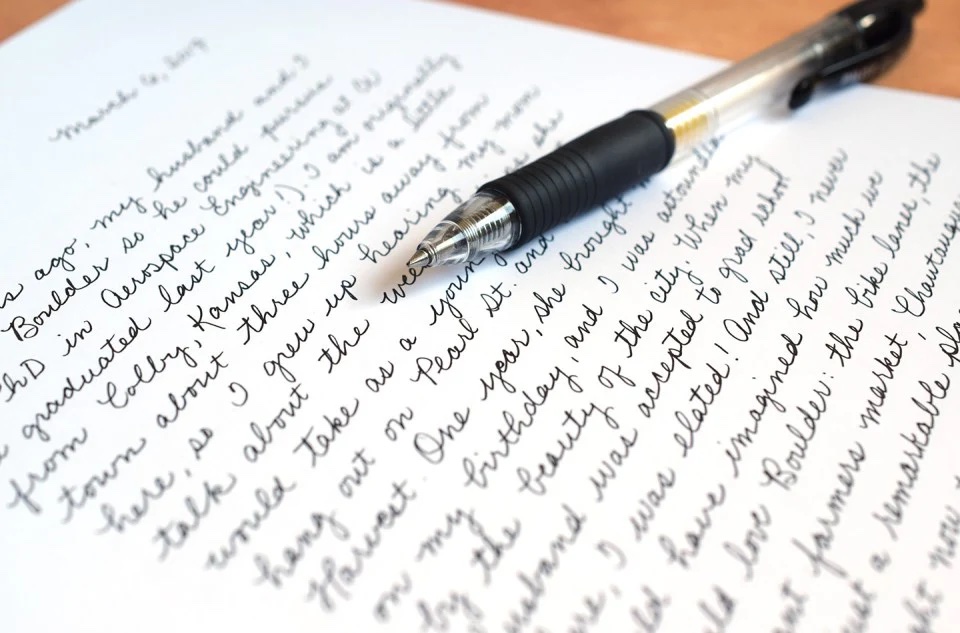Studies by Psychology Today have shown that writing by hand instead of typing deepens content processing and supports emotional health. The exclusive use of computers and the lack of handwriting practice do our brains a disservice by decreasing the areas which are part of the neural networks that control motor, sensory, cognitive, and behavioral functions. While slower than digital, writing by hand has been shown to help fight cognitive decline. Regularly practicing handwriting may improve brain structure and function.
There’s lots of empirical evidence that handwriting has psychological benefits, writing or journaling helps people process life’s emotional ups and downs. Amazon lists thousands of journaling notebooks for just such activities.
Research remains early, but findings so far argue that we shouldn’t abandon old-school pen and paper as obsolete technologies. Writing remains foundational for mental development across our lifespans, from formative early years through preserving cognitive fitness in late adulthood.
Penmanship began in first grade when I was a child. We were given chunky pencils and a green paperback book called “Miss Kettle’s Penmanship” with pages of letters to trace. For years, I had a callous on my finger from pressing so hard as I copied the letters in those books. There was a lot of pressure from the teacher to form the letters perfectly. We studied cursive in third grade and were expected to write all work in cursive after that. In ninth grade, typing class was a requirement, and typed reports were then the norm. Typing class in college involved a “mag-card” computer, which was huge but quick.
In junior high, I experimented with a combination of cursive and printing, getting creative with certain letters. I continued to do well on my handwritten papers and school work, so I adopted the cursive/printing technique as my own. I chose a fountain pen as a tool to perfect my new script. My granddaughter, Freyja, aged five, explains that she dots all of her i’s and j’s with a heart because she loves to write and is an artist.
My dad was an attorney whose penmanship was perfectly gorgeous. On his desk, he had stacks of legal pads with the notes that he wrote on a daily basis. I asked him one day why he made his letters so big in his name and he told me that how you sign your name says a lot about you, your persona. He said that if your signature is tiny, what does that say about you?
This year, as a kindergarten teacher, I’m teaching lowercase and high frequency letters first. Studies have shown that a higher percentage of children succeed using this method. After Common Core educational standards dropped cursive in 2010, some classrooms have returned to the methods used in the sixties and seventies of tracing the letters in a book. Handwriting practice has an incredible influence on cognitive development, stimulating different brain parts associated with language processing, memory retention, and creative expression. Handwriting is essential in developing fine motor skills necessary for performing delicate and precise movements of the hands and fingers. Handwriting activities can increase focus and concentration and is a fun way to express oneself.
I have boxes full of letters from beloved family members, these letters are a part of my history, a look into my past. I would grab this box of letters if my house was on fire because they are priceless to me. My favorites are the letters from my Mom and Dad. The summer when I was nine, my sister and I spent a month traveling with our grandmother. I received separate letters from my parents telling of a colossal rainstorm that flooded my hometown. Each account was totally different and reflected the letter writer’s personality. Dad’s letter was written as an adventure, telling of his rowing a boat to get to his office. Mom wrote about her garden and drew pictures of her droopy flowers in the flood water.
In this box of letters are the daily love notes written by my husband of thirty years. His cheerful little memos wish me a great day or reflect on wonderful days past. His signature always includes a drawing of himself and our little French Bulldog. These notes are the best part of my morning, better than the texts we send throughout the day.
By adding handwriting to our list of activities to promote healthy aging, we enhance our ability to communicate and enrich our lives in many ways.
Kate Emery General is a retired chef/restaurant owner who was born and raised in Casper, Wyoming. Kate loves her grandchildren, knitting, and watercolor painting. Kate and her husband, Matt are longtime residents of Cambridge’s West End where they enjoy swimming and bicycling.



Write a Letter to the Editor on this Article
We encourage readers to offer their point of view on this article by submitting the following form. Editing is sometimes necessary and is done at the discretion of the editorial staff.